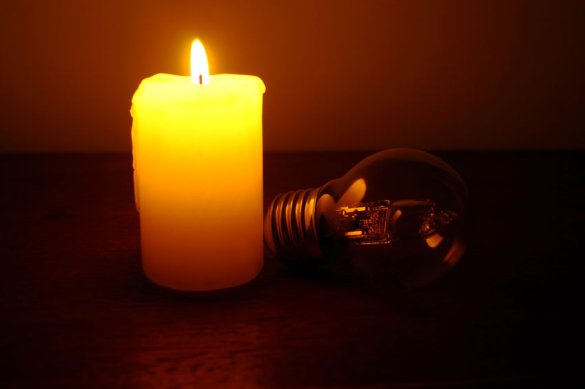Loadshedding is likely to be a part of daily life in South Africa for several years.
- By being prepared, you can reduce the negative impact of loadshedding on yourself, your household and your workplace.
- By using less electricity, you can help to reduce loadshedding.
Depending on how severe loadshedding gets, it could also affect the country’s fuel situation (because generators burn diesel), water supply (because water pumps rely on electricity), and the processing of sewerage (because processing equipment relies on electricity).
We are all in this together. Let’s all do what we can to make the situation as bearable for as many people as possible. Every person’s contribution makes a difference. Be prepared for loadshedding and save electricity for the good of all the people in South Africa.
Tips for being prepared for loadshedding
Know your loadshedding schedule and plan your activities around it.
- Consider getting rechargeable lights.
- Keep your rechargeable lights well charged.
- If you have a cellphone, keep it well charged.
- If you have a laptop, keep it well charged.
- Consider getting a rechargeable power supply for your computer and internet.
- Keep a torch and fresh batteries nearby.
- Keep a candle and matches nearby.
- Consider getting a gas bottle and cooking attachment.
- Keep your gas bottle full.
- Consider getting a backup gas bottle.
- Save your work regularly. Keep a separate backup copy of your documents.
- Boil water and keep it in a thermos flask.
- Keep your fuel tank full. Fuel pumps may not work during a power failure.
- Always have some cash on hand. ATMs and payment machines may not work during a power failure.
- Plan your cooking around the loadshedding schedule.
- Ensure that backup batteries in alarms and CCTV (closed circuit television) cameras are in good working order.
Tips for saving electricity to reduce loadshedding
- Turn off and unplug all electrical devices when you are not using them.
- Turn down the temperature of your geyser.
- Turn your geyser off most of the time and only heat the water when necessary.
- Insulate your geyser so that it uses less electricity.
- Don’t use heaters in winter. Rather dress warmly.
- Don’t use airconditioning in summer. Rather dress in cool clothes.
- If you have airconditioning at work, turn it to 22˚C and dress in cool clothes.
- Boil water and keep it in a thermos flask.
- Wash your clothes at 40˚C.
Visit the 100% Green website for more energy- saving tips.

